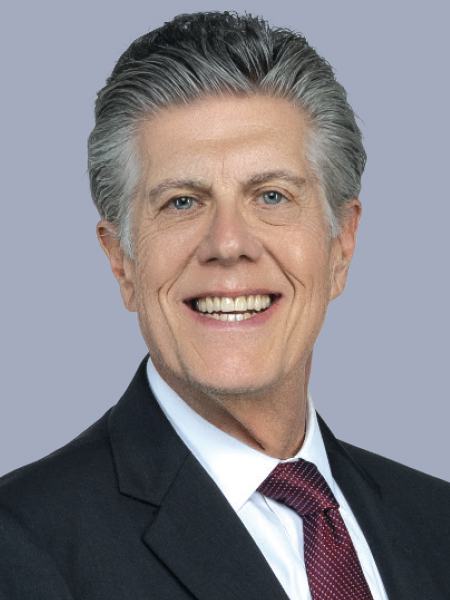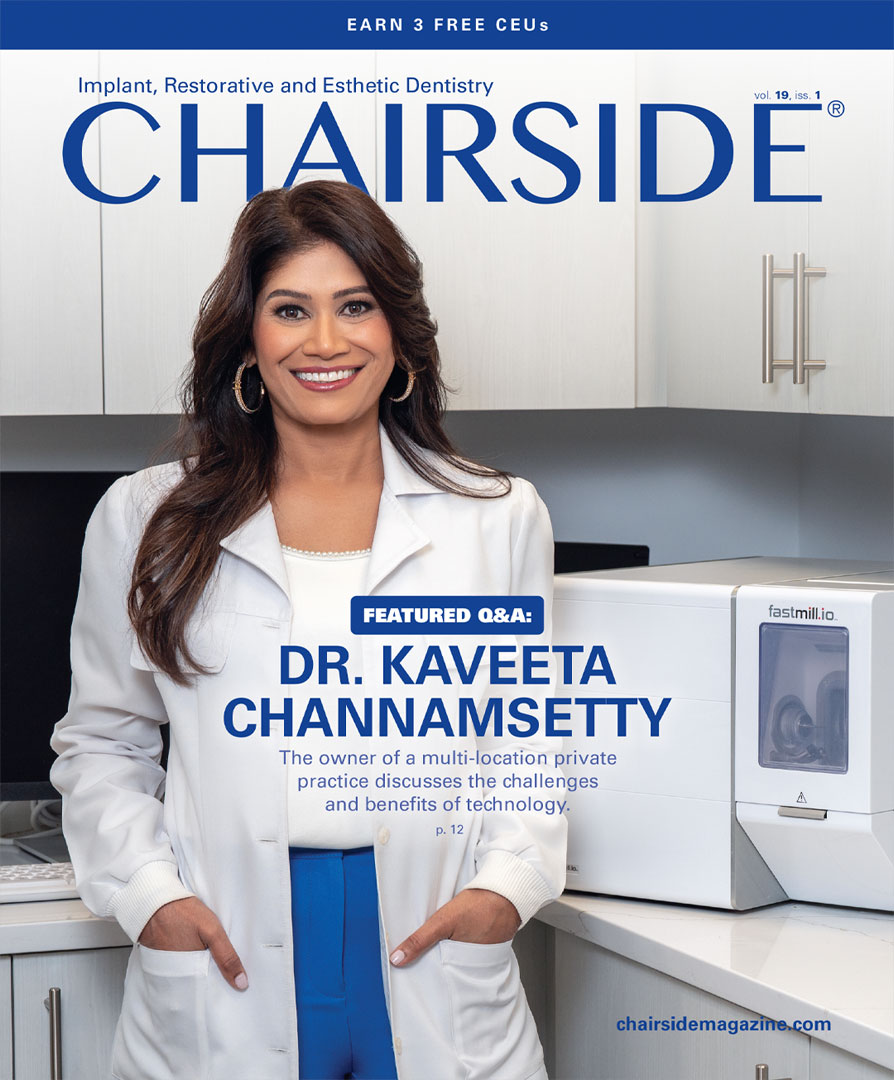Editor's Letter: It Looks Great – But Will It Last?
Our cover interview with Dr. Kaveeta Channamsetty provides insight into this doctor’s motivations and strategies for developing a highly successful four-location group practice in a competitive area near New York City. When she had only recently opened her first office, health requirements — her physician placed her on bed rest for the remainder of her pregnancy — required her to hire an associate on short notice. This forced transition demonstrated to her the advantages of group practice and helped her develop a successful multi-location model.
Dr. Channamsetty also explains that she does not seek to be the first to adopt new technology. She prefers to let the technology develop to the point where she can be confident of gaining the practice advantages she is seeking. Her successful acquisition of scanning technology was soon followed by the incorporation of the Glidewell fastmill.io™ In-Office Mill, and the attendant advantages that it provides to her practice and her patients.
Dr. Jamison Spencer also shares with us his incremental approach to the adoption of new technology. Busy clinicians cannot afford to adopt a “not-ready-for-prime-time” technology, but also cannot afford to miss the advantages as the technology becomes reliable. With a high-volume practice limited to the treatment of orofacial pain and sleep disordered breathing, Dr. Spencer explains how he moved his appliance fabrication method from “salt and pepper” acrylic to thermoforming, and how he is now moving toward 3D printing.
While we often discuss the advantages of newly developed dental materials and processes, we don’t often have the luxury of evaluating long-term clinical results. In this issue, we have the good fortune to look over the shoulder of Dr. Justin Chi as he examines an esthetic case that he completed more than seven years ago. As you will see, the case looks as beautiful today as the day it was placed. It’s a testament to the clinical skills of Dr. Chi, as well as the scientists who developed BruxZir® Esthetic Zirconia and the zirconia bonding protocol that has proven to be so reliable.
Finally, Dr. Roger Pham shares with us a step-by-step full-mouth rehabilitation, from diagnostic wax-up and provisionals, to the definitive BruxZir Esthetic restoration. The details of the treatment will be interesting to all restorative dentists, but the patient’s personal history leading to treatment acceptance is equally illuminating. Understanding that patients have different priorities at different life stages can help us communicate in a more meaningful way, leading to case acceptance when the patient is ready.
As always, I hope you enjoy this issue of Chairside® magazine, and I look forward to your comments.




